Harnessing the power of the sun through solar panels is a great way to produce clean energy and reduce electricity costs. However, protecting these valuable assets from potential damage is crucial to ensure their long-term efficiency and performance. Solar panels are an investment, and like any investment, they need proper care and maintenance to function optimally.
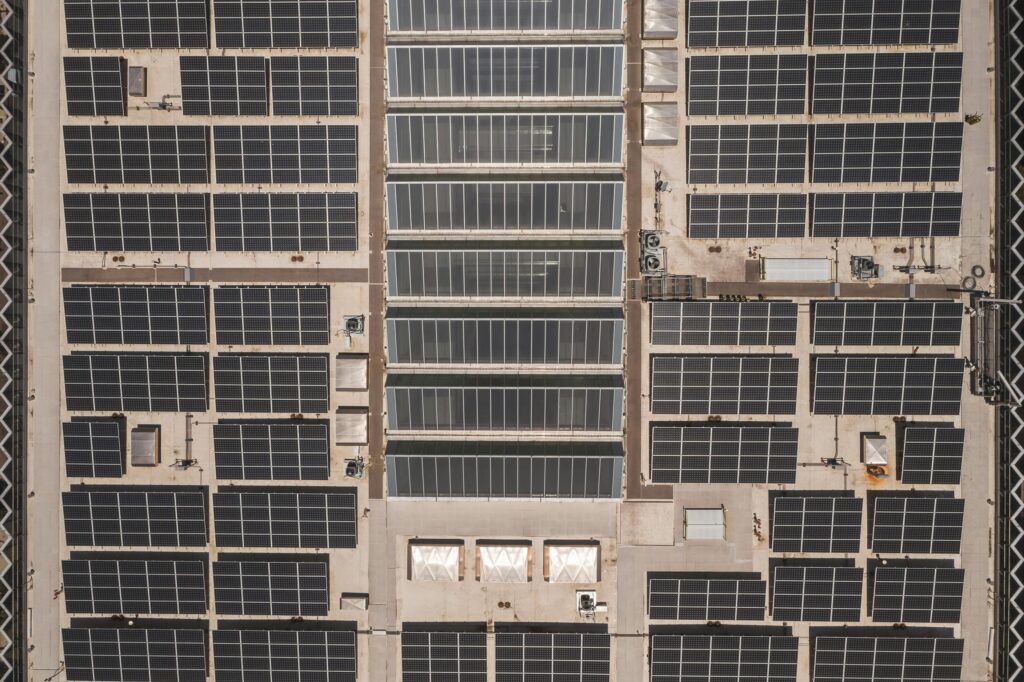
In this article, we will explore various methods and tips to protect your solar panels from damage. We will cover common threats such as weather conditions, physical impacts, and even wildlife. By understanding these risks and learning how to mitigate them, you can extend the life of your solar panels and maximize their energy production.
Table of Contents
Understanding Common Threats
Weather Conditions
Hailstorms:
Hail can cause significant damage to solar panels. The impact of hailstones can crack or shatter the glass surface of the panels, reducing their efficiency or rendering them inoperative.
Snow and Ice:
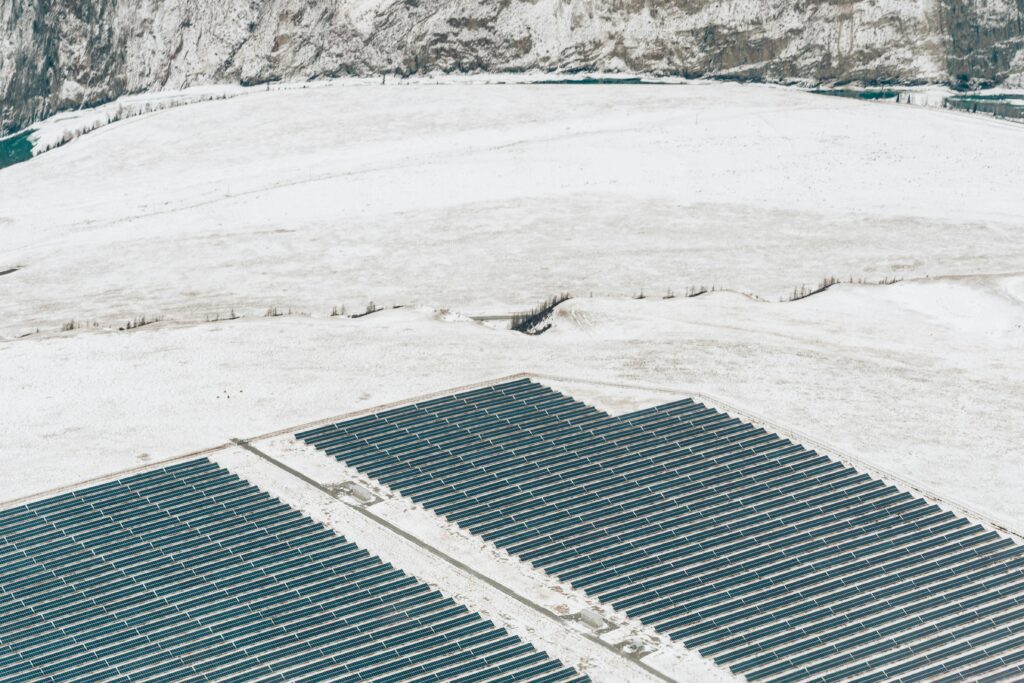
Heavy snow and ice accumulation can put a lot of weight on your solar panels. This can cause structural damage or even lead to the panels breaking. Moreover, snow and ice can block sunlight from reaching the panels, reducing their energy production.
Heavy Rain and Wind:
While solar panels are designed to withstand the elements, heavy rain and strong winds can still pose a threat. Water can seep into the panels, causing electrical issues. Strong winds can dislodge panels if they are not securely installed.
Physical Impacts
Falling Debris:
Branches, leaves, and other debris can fall onto solar panels, especially during storms. This debris can scratch or crack the surface of the panels, affecting their efficiency.
Accidental Damage:
Solar panels can be damaged accidentally by people. For example, maintenance workers might accidentally step on the panels, or children playing nearby could throw objects that hit the panels.
Wildlife
Birds:
Birds can be a nuisance to solar panels. They may perch on the panels, leaving droppings that can reduce the panels’ efficiency. In some cases, birds might even try to build nests under or around the panels, which can cause physical damage.
Squirrels and Rodents:
Small animals like squirrels and rodents can chew on the wiring of solar panels, causing electrical issues. They might also nest near the panels, creating potential hazards.
Preventative Measures To Protect Your Solar Panels:
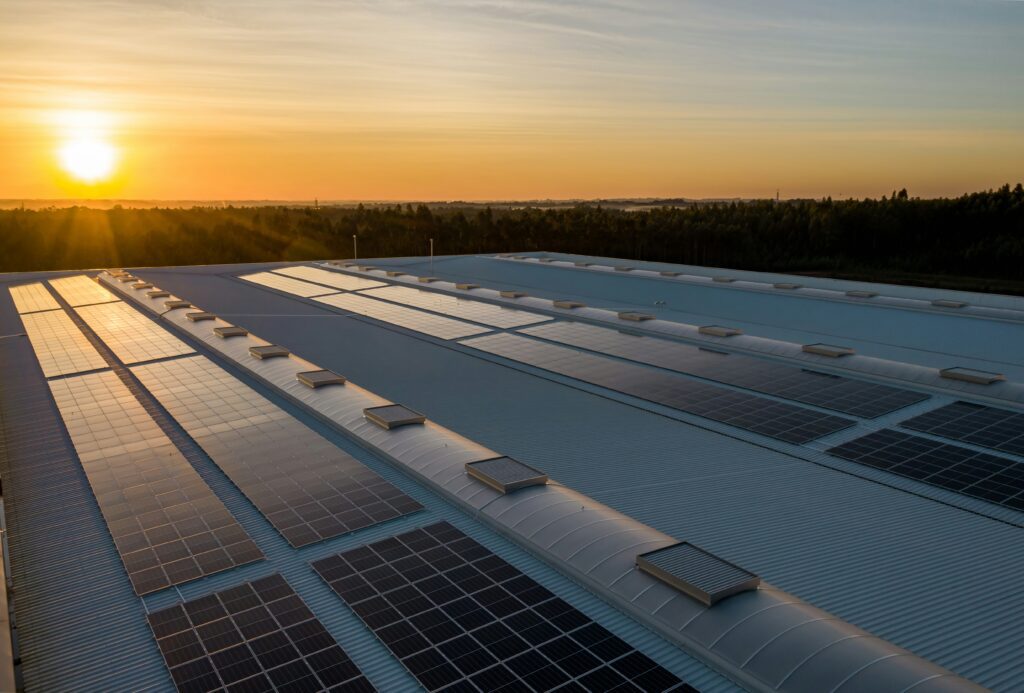
Weather Protection
Installing Protective Covers:
Using protective covers designed for solar panels can help shield them from hail and other debris. These covers are usually made from durable materials that can absorb the impact, preventing damage to the glass surface.
Snow and Ice Removal:
Regularly removing snow and ice from your solar panels can prevent excessive weight and damage. Using a soft brush or a specialized snow rake can help clear the panels without scratching them.
Windproofing Techniques:
Ensuring your solar panels are securely installed is crucial for withstanding strong winds. Using robust mounting systems and adding wind deflectors can help keep your panels in place during storms.
Physical Damage Prevention
Regular Inspections:
Conducting regular inspections of your solar panels can help identify and address potential issues early. Look for signs of damage, such as cracks, scratches, or loose wires, and take action to fix them promptly.
Installing Barriers:
Placing barriers around your solar panels can help protect them from accidental damage. For example, you can install fences or railings to keep people and animals away from the panels.
Proper Placement and Installation:
Ensuring that your solar panels are installed correctly is key to preventing damage. Work with professional installers who can position the panels in a way that minimizes exposure to potential hazards.
Wildlife Deterrents
Bird Spikes and Nets:
Installing bird spikes or nets around your solar panels can deter birds from perching and nesting on them. These deterrents are safe for the birds but effective in keeping them away.
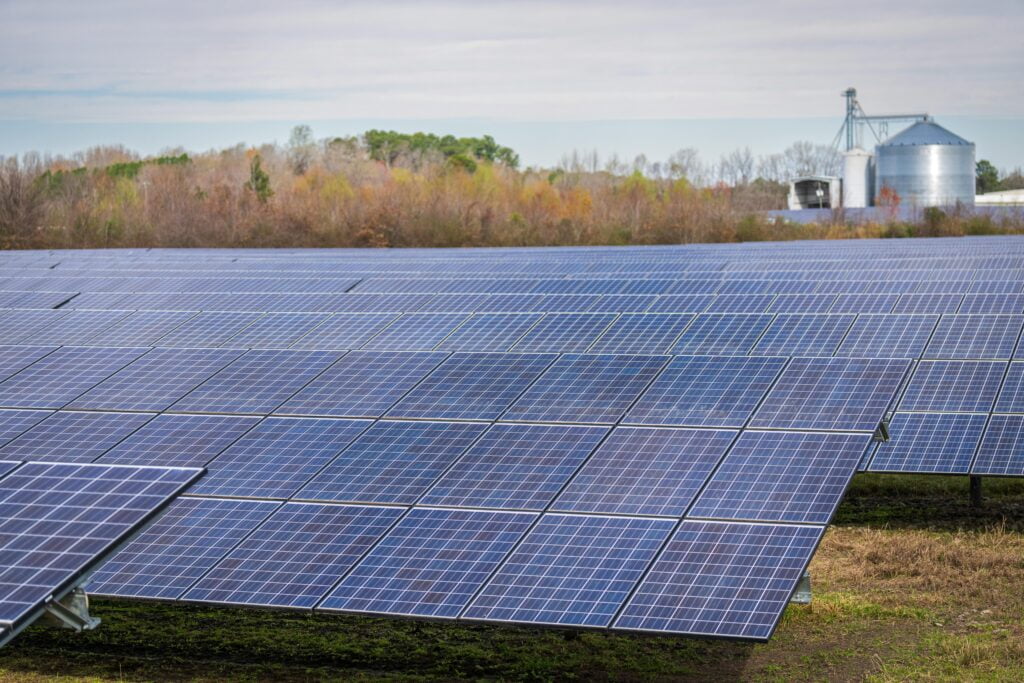
Rodent Guards:
Using rodent guards can help protect the wiring and components of your solar panels from being chewed on by squirrels and other small animals. These guards can be placed around the wiring and other vulnerable areas.
Regular Monitoring:
Regularly monitoring your solar panels can help you spot wildlife issues early. If you notice signs of animals around your panels, take action to address the problem before it causes damage.
Maintenance Tips to Protect Solar Panels
Cleaning the Panels
Regular Cleaning:
Keeping your solar panels clean is essential for their efficiency. Dust, dirt, and bird droppings can accumulate on the panels, blocking sunlight. Use a soft cloth, water, and mild soap to gently clean the surface. Avoid harsh chemicals and abrasive materials that can scratch the glass.
Seasonal Cleaning:
Depending on your location, you might need to clean your panels more frequently during certain seasons. For instance, during pollen season or after a storm, your panels may get dirtier faster.
Checking for Damage
Visual Inspections:
Regularly check your solar panels for visible signs of damage, such as cracks, chips, or discoloration. Look for any loose or frayed wires as well.
Performance Monitoring:
Keep an eye on your solar energy system’s performance. If you notice a sudden drop in energy production, it might indicate that there is damage or another issue with your panels.
Professional Maintenance Services To Protect Solar Panels
Annual Inspections:
Hiring a professional to inspect your solar panels annually can help ensure they are in good condition. Professionals can spot issues that you might miss and provide necessary repairs or maintenance.
Expert Repairs:
If you notice any damage or performance issues with your solar panels, it’s best to call a professional for repairs. Attempting to fix the panels yourself can lead to further damage or void your warranty.
Emergency Preparedness To Protect Solar Panels
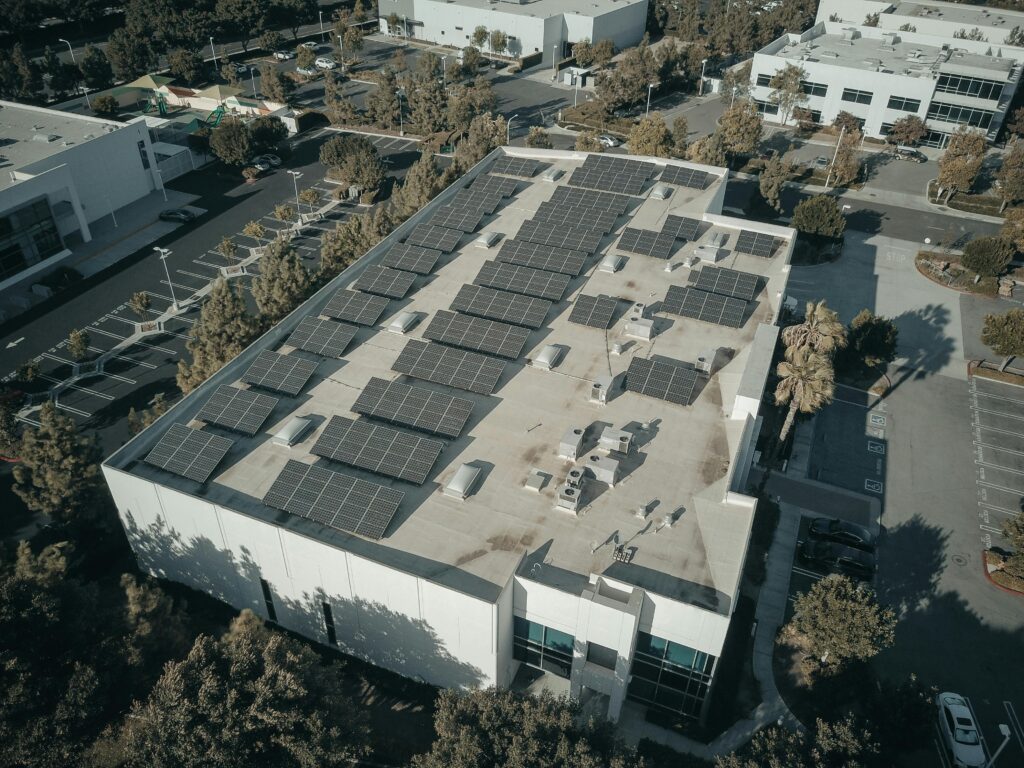
Creating a Response Plan
Identify Risks:
Understand the common risks in your area, such as severe weather, falling debris, or wildlife. Knowing these risks can help you prepare for potential emergencies.
Develop a Plan:
Create a detailed response plan for different types of emergencies. This plan should include steps to take before, during, and after an event. Ensure everyone in your household knows the plan and their responsibilities.
Having Repair Kits Ready
Basic Tools:
Keep a set of basic tools handy for minor repairs. This kit might include screwdrivers, wrenches, and cleaning supplies. Having these tools ready can help you quickly address small issues before they become big problems.
Spare Parts:
It’s a good idea to have spare parts on hand, such as extra wiring or mounting hardware. This can help you make quick repairs and keep your solar panels functioning.
Contacting Professionals in Emergencies
Emergency Contacts:
Have a list of emergency contacts, including local repair services and your solar panel installer. This list should be easily accessible so you can quickly reach out for help when needed.
Professional Help:
In case of significant damage or complex issues, always contact a professional. Trying to fix serious problems yourself can be dangerous and may cause further damage to your solar panels.
Insurance and Warranties
Understanding Your Coverage
Insurance Policies:
Review your homeowner’s insurance policy to understand what coverage it provides for your solar plates. Some policies may cover damage caused by natural disasters or accidents. If your current policy doesn’t cover solar plates, consider adding additional coverage.
Manufacturer Warranties:
Solar plates typically come with manufacturer warranties that cover defects and certain types of damage. Understand the terms and conditions of your warranty, including its duration and what it covers. Register your panels with the manufacturer to ensure you are eligible for warranty claims.
Registering for Warranties
Documentation:
Keep all documentation related to your solar plates and warranties in a safe place. This includes receipts, warranty certificates, and installation records. Having these documents on hand can expedite the warranty claims process if needed.
Regular Maintenance:
Many warranties require regular maintenance to remain valid. Follow the manufacturer’s recommended maintenance schedule and keep records of maintenance activities.
Conclusion
Protecting your solar panels from damage is essential to ensure they continue to generate clean energy efficiently for years to come. By understanding the common threats they face and implementing preventative measures, you can significantly extend their lifespan and maximize their performance.
Regular maintenance, including cleaning and inspections, is key to identifying and addressing potential issues early. Additionally, having a proactive emergency response plan and understanding your insurance coverage and warranties can provide peace of mind in case of unexpected events.
Remember, your solar plates are a valuable investment in renewable energy. Taking the time to protect them now can save you time and money on repairs later. By following the tips and techniques outlined in this article, you can safeguard your solar plates and enjoy their benefits for many years.
Frequently Asked Questions (FAQ)
1. How often should I clean my solar panels?
- It’s recommended to clean your solar panels at least once every 6 months. However, if you live in an area with heavy dust, pollen, or bird activity, more frequent cleaning may be necessary.
2. Are there specific cleaning products I should use?
- Use a mild soap, water, and a soft cloth or sponge to clean your solar panels. Avoid abrasive materials or harsh chemicals, as these can scratch or damage the glass surface.
3. How can I protect my solar panels from hailstorms?
- Installing protective covers designed for solar plates can help shield them from hail damage. These covers are made from durable materials that can absorb the impact of hailstones.
4. What should I do if my solar panels are damaged?
- If you notice any damage to your solar plates, such as cracks or loose wiring, contact a professional repair service immediately. Attempting to fix the panels yourself can void your warranty and may cause further damage.
5. Do I need insurance for my solar panels?
- Yes, it’s advisable to check your homeowner’s insurance policy to see if it covers solar panels. If not, consider adding additional coverage to protect your investment against damage from natural disasters or accidents.
6. How can I prevent birds from nesting under my solar plates?
- Installing bird spikes or nets around your solar panels can deter birds from perching and nesting. These deterrents are effective in keeping birds away without harming them.
7. What should I do during severe weather conditions?
- During severe weather, such as storms or heavy snowfall, monitor your solar plates closely. Remove snow and debris as soon as it’s safe to do so, and consider using windproofing techniques to secure your panels.
8. How long do solar panel warranties typically last?
- Solar panel warranties usually range from 10 to 25 years, depending on the manufacturer. Review the terms and conditions of your warranty to understand what is covered and for how long.
9. Can I perform maintenance on my solar plates myself?
- Basic maintenance tasks, such as cleaning and visual inspections, can be performed by homeowners. However, for more complex issues or repairs, it’s best to hire a professional with experience in solar panel maintenance.
10. What are some signs that my solar plates may be damaged?
- Signs of damage include reduced energy production, cracks or chips on the glass surface, loose or frayed wiring, and physical debris on the panels. Regular inspections can help you identify these issues early.